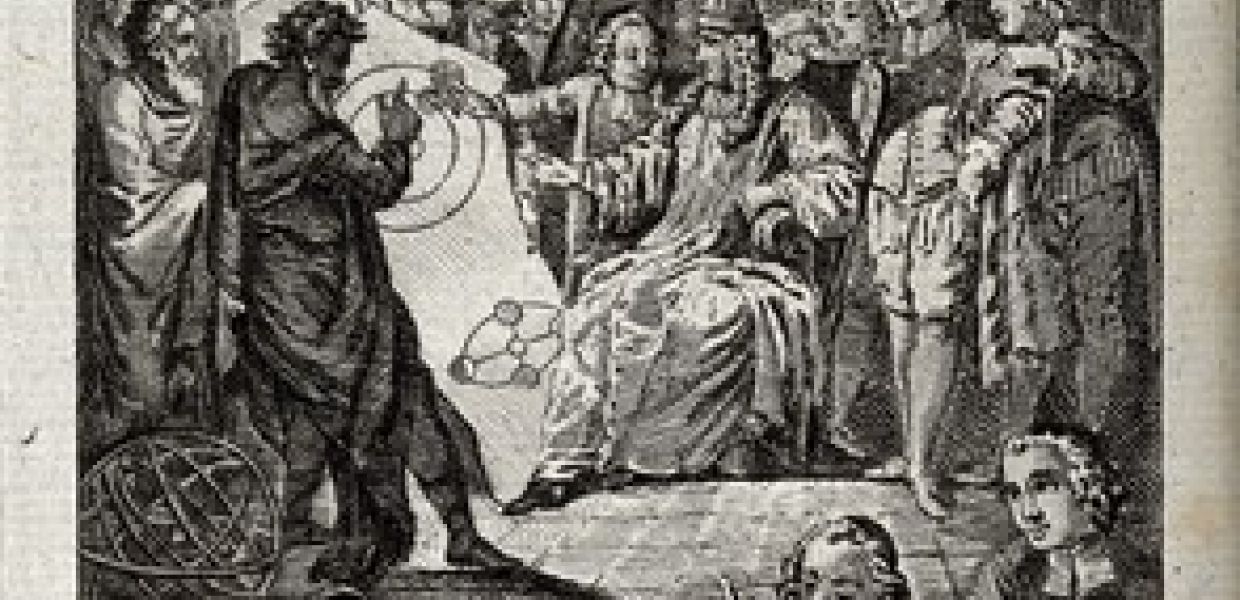From public libraries to business and brokerage: a round-up of Europeana Task Forces

As you may know if you’re a member of our Network Association, we run Task Forces to bring experts in our community together to address challenges facing Europeana and its strategy. These Task Forces work on recommendations which then inform the following year’s business plan, ensuring the Network Association has a direct say in Europeana’s future. More broadly, we believe they contribute to the digital cultural heritage sector as a whole - the challenges we face, and the solutions we find, rarely apply exclusively to the work that we are doing.
As the end of the year nears, eight Task Forces are wrapping up, or have already done so. They’ve been working away busily over the course of the year and will publish their findings in early 2016 (one, Evaluations and Enrichments, has already and you can read them here). While we’ll hear from each Task Force in greater depth then, we thought we’d catch up with each of the Chairs to hear their highlights before the holidays.
The Content Re-use Task Force recently produced the Publishing Framework, an important step forward in our mission to help our partners get more out of the collections they share with us. Harry Verwayen, who led the Task Force along with Merete Sanderhoff, is delighted to have been able to share one outcome of their work. “We are excited that the hard work of the Task Force resulted in a tangible framework which manages the relationship between what cultural institutions share with Europeana, and what they can expect in return. The Task Force has done an incredible job setting standards in their respective communities and are now helping translate the framework into as many languages as possible.” The Publishing Framework has had a fantastic reception so far - if you’ve yet to read it, it’s available here.
Re-use was a priority for the education Task Force too, chaired by Steven Stegers. “Education has great potential for re-use. And while most providers are happy to see their collections being used and re-used by students, there are barriers - copyright, for instance, and discoverability - which stand in the way of this potential being fully realised. It will take work to overcome these, but we hope the work we have done will offer opportunities for Europeana to unlock at least some of this potential, and be the basis for a lively new community of experts.”

Astronomy: a gathering of people around an astronomical chart, engraving after J.P. Le Bas. The Wellcome Library CC BY
The FLOSS Task Force shared this desire to build an active community according to its chair Gregory Markus. “What’s most exciting about this Task Force is the potential within EuropeanaTech to form a stronger open source developer community. Rather than just working in project bubbles, we can come together and focus our efforts. There is a huge need for things like interoperability and standardizations, and developing adaptably. My hope is that we become as strong as the EDM community is now, still passionate about strengthening a tool created five years ago.”
Exploiting opportunities for Europeana and digital cultural heritage in business is the topic for the next Task Force we hear from. Marco Rendina, the technical coordinator for Europeana Fashion, chaired this group, and the Fashion project provided the Task Force with a valuable model. “Working to define effective business cases in the cultural heritage domain is quite challenging. We had to think outside the box, and explore scenarios that were completely alien to most of us. But this exploration forced us to really focus on our value propositions, something that is easily taken for granted, and this exercise helped us better understand what we have to offer and why.”
From the world of business to the world of public libraries. The Public Libraries Task Force came together to look at how to better represent the voice of this sector in Europeana. Chair Rob Davies is pleased with their progress: “the Public Libraries Task Force has opened up an important avenue toward re-use of Europeana content and services by people who use Europe’s 50,000-strong network of public libraries in local communities. This centres on the creative momentum of the Makerspace movement in public libraries and initiatives like it - the results have the potential to be quite exciting!”
Also looking local was the Task Force ‘Connecting local networks for collaborating and information sharing’. Chair Hans van der Linden was enthusiastic about the possibilities they offer: “We identified characteristics and underlying principles for local, open networks as ecosystems for the sustainable handling of digital cultural heritage. The recommendations we have drawn up address setting up new networks as well as improving existing ones, at a European, macro-regional and local level.”
Last but not least, and also working to better connect individuals and institutions working towards the same goals in the broader Europeana community was the Communicators Group Task Force. “There’s the potential to create a really powerful network of communicators working together across Europe to amplify the great work being done in the digital cultural heritage sector,” explains Chair Kerstin Herlt, “and what we wanted to design was a practical framework for one - something sustainable that works across borders and domains. We’ve worked hard to crack this, and now we are ready to get started - stay tuned in the new year!”
As these diverse groups show, the Europeana community brings together an extraordinary array of experts from numerous backgrounds, all working towards a secure and sustainable future for Europeana. Together, they answer specific needs, not just for Europeana, but for the digital heritage sector more widely. We are grateful for all their time and efforts, and look forward to sharing their outcomes and final recommendations soon.
